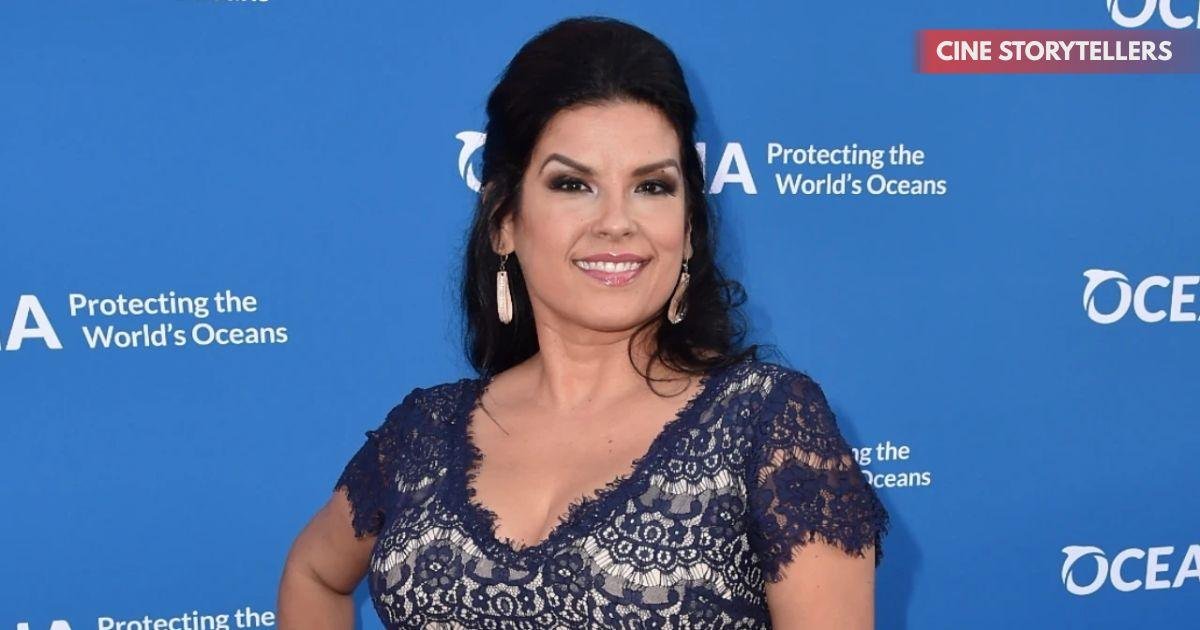Rebekah Del Rio, the powerhouse vocalist who captured hearts and haunted souls with her spine-tingling rendition of “Llorando” in David Lynch’s Mulholland Drive, has passed away. She died on June 23, 2025, at the age of 57 at her home in Los Angeles. Though her physical presence is gone, her voice—raw, mournful, beautiful—will echo across cinema and music forever.
For many, hearing her sing felt like time itself paused. That’s the kind of magic she carried.
Early Life and Musical Roots
Born in Chula Vista, California, in 1967, Rebekah Del Rio grew up surrounded by Mexican-American traditions and music. From mariachi to opera, her early exposure shaped a vocal range that was at once classical, cinematic, and deeply soulful.
The Breakthrough Moment: Mulholland Drive
Rebekah’s breakout came in 2001 when she appeared as herself in David Lynch’s enigmatic masterpiece, Mulholland Drive. In a scene that fans still describe as “spiritual,” she performs “Llorando” (a Spanish version of Roy Orbison’s “Crying”) live, in a dark, surreal venue called Club Silencio.
She wasn’t lip-syncing. She did multiple takes live—each one flawless.
The Power of “Llorando”
“Llorando” wasn’t just a song—it was an emotional reckoning. Stripped of instruments and theatrics, her voice alone drove audiences to tears. It became a cinematic landmark, often cited as one of the most moving musical moments in film history.
In that scene, Rebekah didn’t just sing—she channeled grief, longing, and transcendence.
Collaborations with David Lynch
Following Mulholland Drive, Rebekah maintained a strong artistic bond with David Lynch. She returned for:
- Twin Peaks: The Return (2017) – delivering another haunting performance
- Frequent live performances at Lynch-related events and festivals
Their creative chemistry was electric—two surrealists who understood that sound could paint as vividly as visuals.
Other Notable Film Contributions
Rebekah’s cinematic voice also appeared in:
- Sin City (2005)
- Southland Tales (2006)
- Man on Fire (2004)
Her music added a haunting elegance to gritty, emotional films—like silk laid over broken glass.
Beyond Film: Albums and Performances
Rebekah released albums and performed across the U.S. and Europe. Her music combined Spanish-language ballads, jazz standards, and operatic influences, making her live shows unforgettable.
She sang not for charts—but for feeling.
A Style All Her Own
From her iconic black hair and glamorous stage presence to her genre-blending artistry, Del Rio stood apart. She was timeless—part Billie Holiday, part Chavela Vargas, part dream sequence.
Personal Life and Tragedies
Though mostly private, Rebekah faced profound loss. In 2009, her only son, Phillip DeMars, tragically passed away. It was a heartbreak that shaped the tone of her later performances—more tender, more powerful.
She is survived by her nephew, Dan Coronado, and a global family of fans.
Cause of Death and Public Reaction
Her death was confirmed by the Los Angeles Coroner’s Office, but the exact cause has not been publicly disclosed. The news shocked fans and colleagues, many of whom had no idea she had been battling health issues.
Tributes from Artists and Fans
Social media quickly became a memorial:
“No one could move a room like Rebekah Del Rio. A once-in-a-lifetime voice.”
“She didn’t just sing—she summoned emotion from another world.”
David Lynch has yet to make a statement, but sources close to the director say he is “heartbroken.”
Her Legacy in Pop Culture
“Llorando” has been analyzed in academic film journals, quoted in music reviews, and included in countless “greatest film scenes” lists. Rebekah Del Rio’s impact wasn’t fleeting—it’s culturally significant.
Why Her Voice Still Matters
Rebekah wasn’t just a vocalist. She was a medium—for grief, passion, and transcendence. In an age of auto-tune and trends, she reminded us what raw talent, pure feeling, and real performance can do.
Upcoming Tributes and Memorials
A series of tribute concerts and film retrospectives are reportedly in planning stages in Los Angeles and New York. Fans also hope to see a special edition vinyl release of her most famous performances.
Final Words on a Timeless Talent
Rebekah Del Rio may be gone, but her voice is eternal. Her songs will continue to whisper in dream sequences, cry in silence, and sing to broken hearts. She didn’t need fame—she had resonance.
Also Read : Orlando Bloom’s Reported Reaction to Katy Perry’s Space Flight Sparks Public Debate
FAQs About Rebekah Del Rio
1. What was Rebekah Del Rio best known for?
She was best known for performing “Llorando” in Mulholland Drive—a moment that became legendary in cinema.
2. When did Rebekah Del Rio pass away?
She died on June 23, 2025, at the age of 57 at her Los Angeles home.
3. What was the cause of death?
As of now, the official cause of death has not been disclosed by the coroner.
4. Did she have any children?
Yes, her son Phillip DeMars tragically passed away in 2009.
5. Will there be a memorial or tribute for her?
Yes, tribute concerts and memorials are expected, with fans calling for a formal celebration of her work.
Join our WhatsApp channel for more updates and information about celebrities and entertainment

I’m Atul Kumar, founder of Cine Storytellers and an entertainment creator with 5+ years of experience. I cover films, celebrities, music, and OTT content with a focus on accurate, ethical, and engaging storytelling. My goal is to bring readers trustworthy entertainment news that informs, inspires, and goes beyond gossip.
Discover more from Cine Storytellers
Subscribe to get the latest posts sent to your email.
